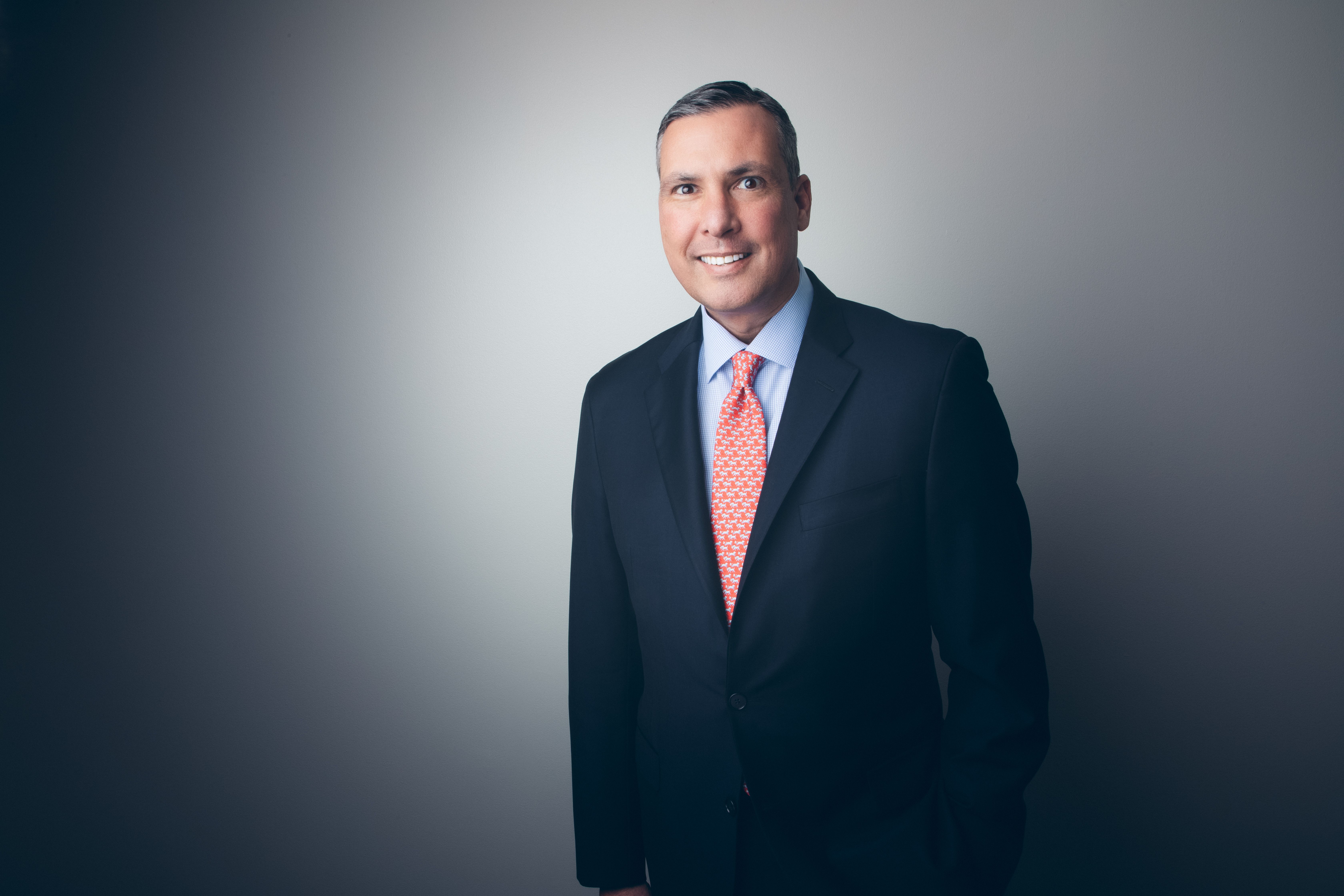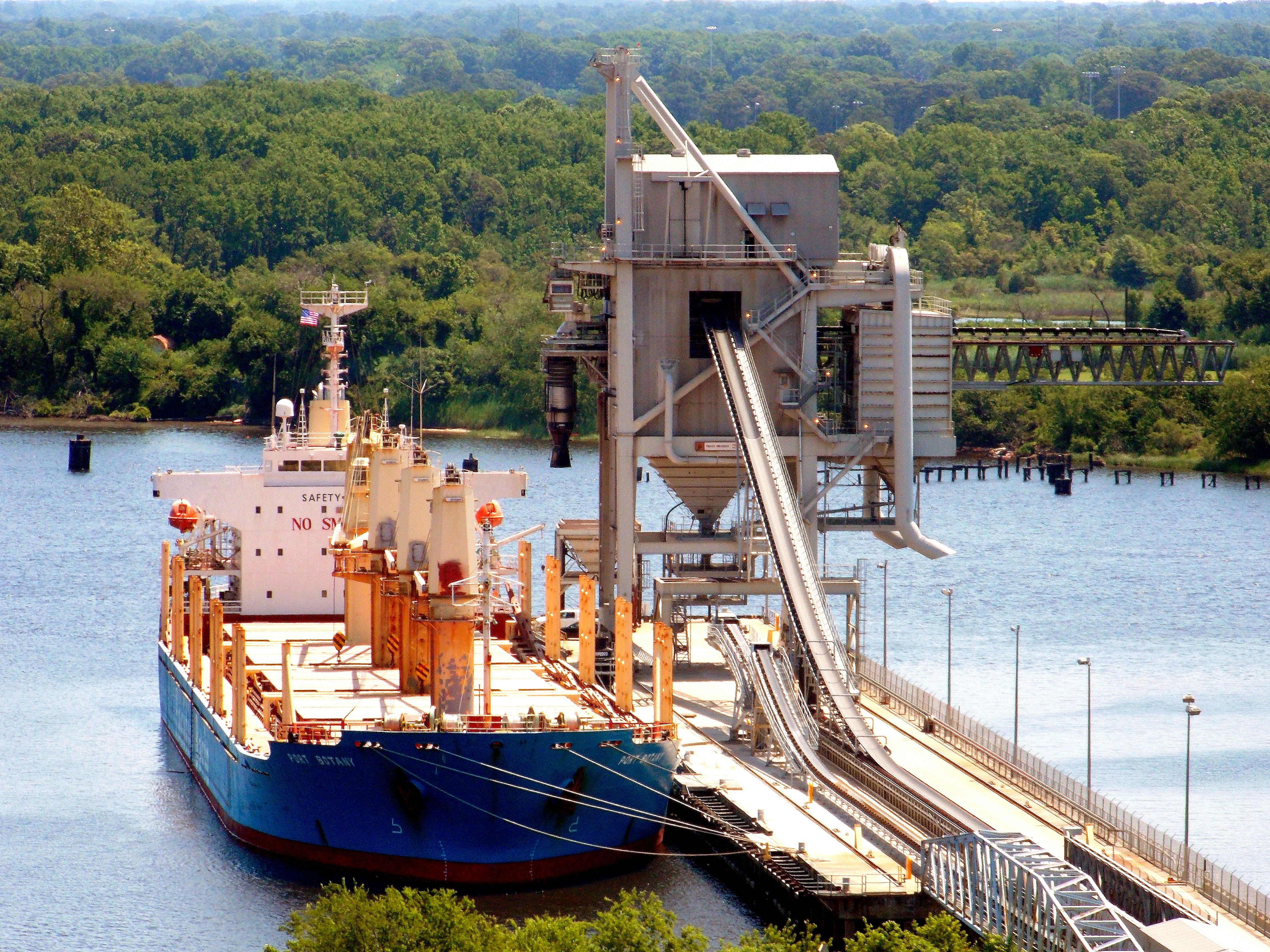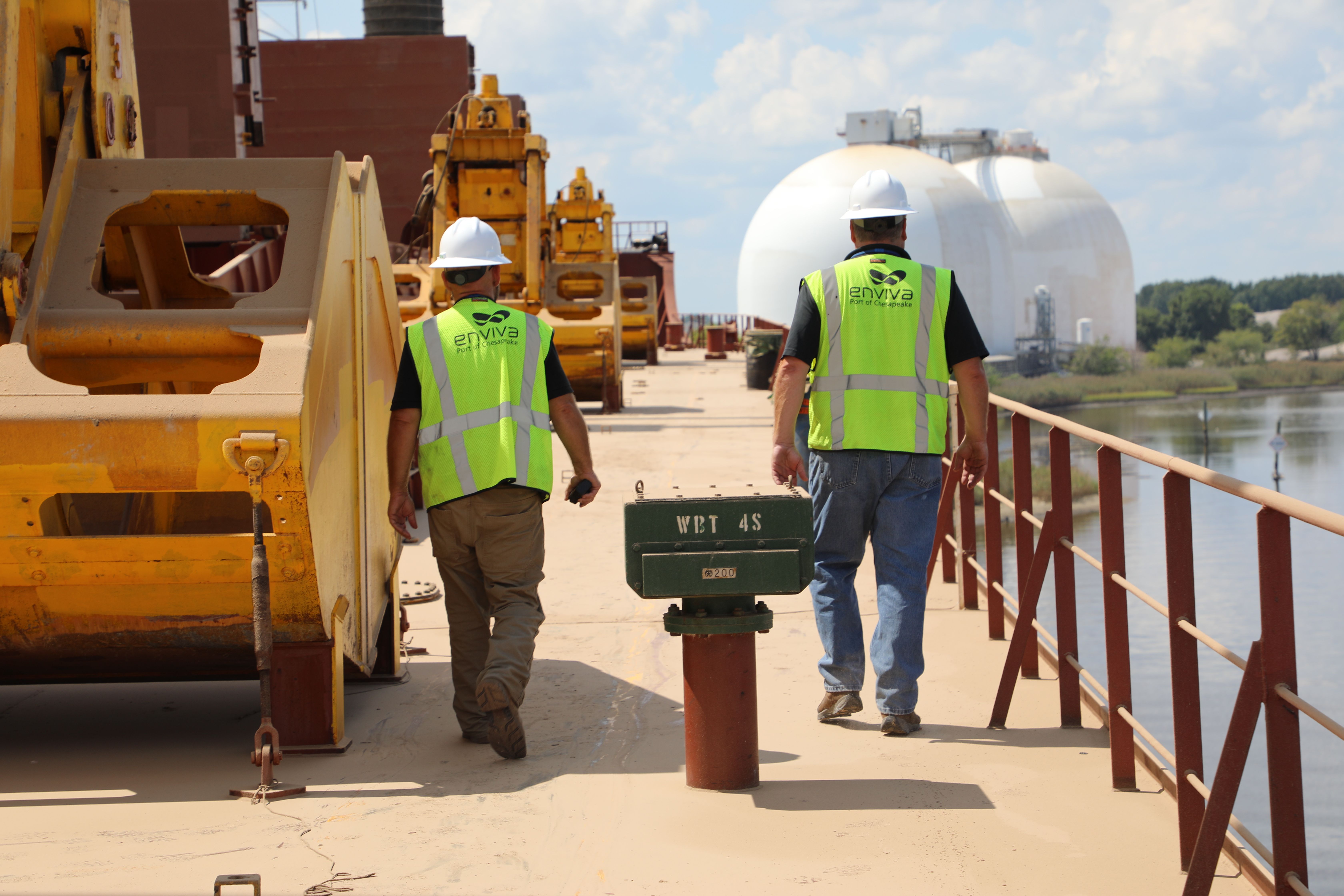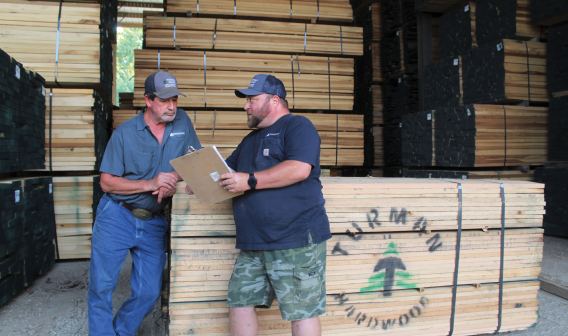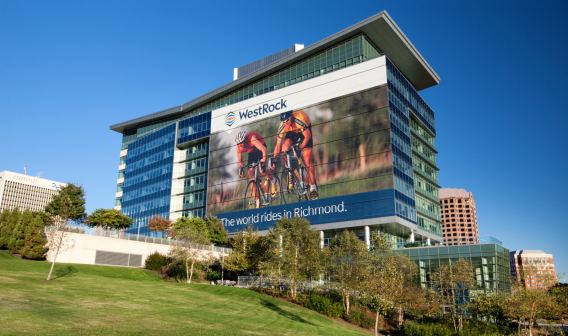An Exporter's View of International Trade
A Conversation With John Keppler
John Keppler is chairman, CEO, and co-founder of Enviva, the world's largest producer of woody biomass and one of Virginia's largest exporters out of its private terminal in the city of Chesapeake. Enviva's sustainable wood pellets, made from low-value wood, are sourced from regions where the carbon stocks of the forests are stable or increasing, and with a requirement that landowners intend to return their land back to forests after harvest. VEDP President and CEO Stephen Moret spoke with Keppler about the company's unique export profile, its commitment to sustainable forestry practices, and the quest to get to net zero carbon emissions by 2030.
Stephen Moret: Can you tell us a bit about the genesis of Enviva and how you initially got into the bioenergy field?
John Keppler: The founders of this company, myself and a couple of other folks, actually met at the University of Virginia’s Darden School of Business. We got to know each other pretty well and shared a similar intellectual curiosity for what was a really, really difficult question: how to solve the complex equation between energy and the environment?
We didn’t start the company right out of business school but spent a couple of years working in different industries before we quite literally “put the band back together” and started what would be the predecessor company to Enviva.
Like many startups, we did a lot of different things we thought we would be good at. Ultimately, we converged around a few things that we were actually good at. One was helping large-scale energy producers displace coal with a new, reliable, dispatchable fuel — biomass. As a result, we were able to manufacture a renewable, sustainable product that is a direct drop-in substitute for coal.
Moret: Why did Enviva originally choose Virginia, and Chesapeake specifically, as a shipping location for your products?
Keppler: We have to start with the reality that climate change is a global problem. That means you need global solutions as part of an all-in approach to solving this problem. If you’re going to see the growth and success of your company, where are you likely to do so?
Where there are talented people, resources, and infrastructure that will support and be beneficial to your business. For us, that was Virginia.
We were able to invest intensely in Virginia for a couple of reasons. The first is that Virginia has been a very supportive state for business and industry. Virginia also provides a combination of tremendous terminal and port access to the Chesapeake Bay as well as access to a skilled workforce and raw natural resources, which are healthy, growing forests. The ability to access these raw materials in a place where we could logistically get to a terminal that we own, control, and export around the world was a match made in heaven. That’s why we initially decided to anchor our business in Virginia.
The ability to access these raw materials in a place where we could logistically get to a terminal that we own, control, and export around the world was a match made in heaven. That's why we initially decided to anchor our business in Virginia
Moret: Let’s talk about some of the biggest markets for your wood pellets. What is it that drives demand in those markets?
Keppler: The key driver of demand is the macro theme around the world — the transition away from an economy that has been based historically on fossil fuels and hydrocarbons to one based on renewables and alternatives.
What has happened around the world, and most recently in the United States with President Biden reentering the Paris Agreement, is a global effort to change the outcomes of the way energy is sourced, produced, and leveraged. Mitigating climate change is critical and Virginia is a key part of that solution.
The policymaking mechanisms are creating incentives for large-scale, coal-fired power generators to convert away from coal in favor of renewable resources, and that’s exactly where we come in. Whether it’s the United Kingdom or across continental Europe — Denmark, the Netherlands, Belgium — countries are making a substantial contribution to climate change mitigation, underscoring the indispensable role of biomass in the EU energy transition. For example, Germany recently passed its coal exit law and Poland, the largest per capita user of coal on the European continent, is looking at massive decarbonization.
Japan, of course, is solving the same climate change objectives, but with an additional challenge — they have been falling short of generating capacity in the wake of the Fukushima nuclear disaster. With that, the opportunity for utilities there to build new biomass firepower stations has created a very large market growth opportunity for us. In fact, Japan has a growing, policy-fueled appetite for U.S.-made wood pellets and its demand is expected to grow 33% just in 2021.
Moret: We talk a lot about exports and trade at VEDP. We’ve been fortunate to have one of the best trade development teams of any state in the country, if not the best. We talk about the benefits for wages, for economic growth, for competitiveness. What has exporting meant for your company and your growth for Enviva?
Keppler: We would not be the export business that we are today without the leadership of the Virginia team across multiple gubernatorial administrations. What we have seen since starting our business in Virginia is the full support of Virginia legislators and executive leadership in doing overseas trade missions. Physically going to international markets and talking to policymakers about the decisions they are making, and reinforcing the value and opportunity that Virginia can bring to those jurisdictions around the world, have proven beneficial.
Secretary [Bettina] Ring is obviously not just a state forester, but a leader in natural resources, and has been a remarkable ally in educating folks around the world about how Virginia landowners grow trees and why that private land ownership base across Virginia and the Mid-Atlantic is so important to helping solve the world’s problems. It may sound counterintuitive, but strong markets for forests and forest products create more forests. That’s why we’ve seen such rapid forest growth across Virginia. It’s also why you’ve seen continued investment in companies like Timberland Holdings. The more demand to grow trees, the more trees planted, and more carbon sequestered. It’s a very, very positive cycle, and Virginia is among the best in doing this across the entire U.S. southeast.
Moret: This issue of Virginia Economic Review is all about international trade. As a major exporter from the U.S., what are the highest-priority trade issues that concern you at Enviva?
Keppler: As one of the largest exporters in Virginia, we made an important decision to invest a large amount of capital in the physical infrastructure to maintain the consistent, reliable delivery of our products to our customers around the world. From the start of the relationship, our customers enter into long-term commitments with us that ensure their own base load of dispatchable heat and power generation.
Maintaining the free flow of trade — that is, maintaining open borders and consistency in the flow of products, which is essential to helping countries meet their decarbonization goals — is very, very important. We have been quite fortunate with Virginia’s interest and focus on being an export economy, particularly around natural resources.
The level of investment that Virginia has and continues to make in ports like Norfolk, Portsmouth, and Chesapeake is really quite remarkable. That level of dedication ensures our company has, and will continue to have, uninterrupted access to the global distribution of our product. Their support, both with the federal government and with trade missions overseas, has really continued to reinforce that. We are privileged to be a part of the Virginia economy.
Moret: The COVID-19 pandemic has obviously been a challenging time for company leaders across the spectrum. What kind of impact did that have on you and on the energy industry more broadly?
Keppler: From Enviva’s perspective, we have been incredibly fortunate. Gov. Northam, his administration, and the Department of Homeland Security classified our industry as critical infrastructure early on. That direction enabled us to keep our plants and ports running. We didn’t miss a single delivery to any of our customers and, as a result, our supply chain kept running and we grew pretty significantly across the full year of 2020 and into 2021.
That doesn’t mean we’ve been immune from COVID by any means. For example, the health and safety of our employees, our partners, and our communities are of the utmost importance to us, and therefore we had to reimagine and change the way we did business to ensure the continuity of that safety.
With that being said, we were very fortunate to be largely insulated from the economic effects of the pandemic. This, in part, is due to our long-term customer contracts with very specific obligations. Additionally, our customers are the world’s largest power and heat generators that are also classified as essential to keeping lights on in hospitals, and heat generated throughout places like Copenhagen and elsewhere. Enviva played a critical role in helping energy suppliers around the world navigate through something our generation certainly has never seen and, hopefully, will never see again.
The level of investment that Virginia has and continues to make in ports like Norfolk, Portsmouth, and Chesapeake is really quite remarkable. That level of dedication ensures our company has, and will continue to have, uninterrupted access to the global distribution of our product.
Moret: What do you see as the next big innovation that could transform the way the energy industry operates?
Keppler: I think it’s driven a bit by the policy to reduce global greenhouse gas emissions. The European Union is a great example. The EU set its 2020 goals in its renewable energy directive (RED), which was 20% renewable energy by 2020, and 30% by 2030.
However, over time, I think we have concluded that it’s not just about reduction — it’s about getting to what net zero really is: industrial activity and human behavior. We will inherently always have some form of emissions profile, but to get to net zero we will have to identify a negative emissions profile somewhere else.
Looking ahead, we expect the role of wood pellets in the energy system to substantially evolve as we exponentially reduce carbon emissions globally. Sustainably sourced wood-based biomass offers a carbon-neutral replacement to coal and gas-fired furnaces in heavy industries such as steel, aluminium, and cement. More exciting yet is the possibility of teaming bioenergy with carbon capture and storage, known as BECCS, to create negative emissions technology. It means you’re taking essentially a renewable fuel and you’re sequestering carbon while generating the benefit of principal power and heat. If we cannot totally decarbonize sectors of our economy by 2050, then it is critical we develop carbon-negative solutions to offset the emissions that remain. BECCS is one of the few technologies available today at scale that can create negative emissions, and we’re excited to be a supply chain partner for BECCS as it continues to emerge around the world.
Moret: You also manufacture in Virginia, in Southampton County. What does the Commonwealth have to offer companies like yours that are involved in the wood products industry, as well as others that are exporting from the United States?
Keppler: The development cycle for building new businesses is hard on its own, and we would not have been able to build a terminal like we did in Chesapeake without the help of Virginia. We would not have been able to build a plant like we have in Southampton — which we recently expanded — without consistent support from Virginia.
Regarding our Southampton plant, it’s not just the business and the jobs we create, but ensuring we do right by the people we serve and the communities we operate in. To this point, the plant in Southampton is the most air emission-controlled plant in Virginia, if not the U.S., from a wood products industry perspective. Additionally, our plants are all contracted on a long-term basis, meaning these assets are going to be employing people for a long time and buying residual, low-value wood from thousands of Virginia landowners for many years to come.
To date, our annual economic impact in Virginia is about $300 million, not to mention Enviva supports more than 400 jobs across the state, both direct and indirect. We pay wages that are 30% to 40% higher than the local average and have invested more than $280 million in Virginia. We are proud to be an employer of choice in the state of Virginia.
Moret: It’s a wonderful story and I think all of us at VEDP who have been aware of it are very proud just to have been a part of Enviva’s success in the Commonwealth, along with so many others at the local and state levels that have supported your growth. I want to shift a little bit and ask you a personal question as we wrap up. I know you’re not from Virginia, but I do know that you got an MBA from the Darden School at UVA, which is one of our great universities in the Commonwealth. What are your favorite places in Virginia to visit?
Keppler: Charlottesville is an incredibly special place. Truth be told, the place I wanted to go to college was Mr. Jefferson’s university. Although it was my first choice, I don’t think I was their first choice. When business school came around, I had the chance to get down to Charlottesville and interview at UVA and the Darden School. I feel incredibly fortunate to have had that time there. Charlottesville is absolutely one of my favorite places in the entire world.
The other place in Virginia that is one of my favorite places is the end of our pier at our terminal in Chesapeake. As I stand there and look back, I find a lot of personal reflection about what we have helped build and how we have helped unlock opportunity around the world to change the difficult equation of energy and the environment. I reflect on how we have benefited from Virginia, its natural resources, and its landowners. Standing out there, you can see how it all comes together.
Moret: John, thank you, not just for joining us today, but thanks so much for everything that your leadership and your company have done to advance economic development in multiple parts of Virginia, to help advance exports and our trade development activities. You’re definitely one of the great success stories that we’re proud to be associated with.
Keppler: I appreciate being invited. Thank you so much.
For the full interview, visit www.vedp.org/Podcasts
